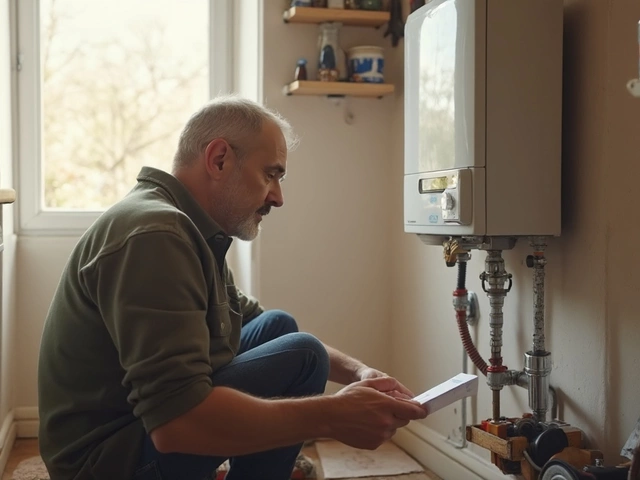Got a new electric oven and want to get it working fast? You don’t need a PhD in wiring – just a bit of patience, the right tools, and a safe approach. This guide walks you through everything you need, from prepping the space to connecting the power.
First, gather the basics: a screwdriver set, a drill, a voltage tester, a level, and a pair of safety gloves. You’ll also need a suitable power outlet – most electric ovens need a dedicated 240‑V circuit with a proper plug. Check the oven’s manual for exact voltage and amperage specs.
Before you start, turn off the circuit at the breaker. Use the voltage tester to double‑check that no power is flowing to the outlet. If you’re unsure about the wiring, it’s worth a quick call to an electrician – a mistake here can be dangerous.Clear the area around the installation spot. Measure the oven’s width, height, and depth, then compare it to the cut‑out in your countertop or wall. You want a few centimetres of clearance on each side for ventilation.
1. Place the oven: Carefully slide the oven into its space. Use a level to make sure it sits flat; an uneven oven can heat unevenly and strain the door hinges.
2. Secure the unit: Most ovens come with brackets or screws to anchor them to the cabinet. Follow the manufacturer’s guide and tighten the fasteners without over‑tightening – you don’t want to crack the frame.
3. Connect the power: If the oven has a cord with a plug, simply plug it into the dedicated outlet. For hard‑wired models, strip the wires, connect the live (L), neutral (N), and earth (E) to the corresponding terminals, and tighten the screws. Double‑check each connection with the voltage tester.
4. Test the oven: Turn the breaker back on and set the oven to a low temperature for a quick test run. Listen for any unusual noises and make sure the heating elements glow as they should.
5. Finish up: Once the oven runs smoothly, replace any trim or panels you removed. Clean the interior with a soft cloth and dry it thoroughly before you start cooking.
That’s it – you’ve installed an electric oven without the hassle. If anything feels off – flickering lights, tripped breakers, or strange smells – shut off the power immediately and call a qualified electrician. Safety always comes first.
Enjoy baking, roasting, and cooking with your new oven. With the right preparation and a clear set of steps, installing an electric oven can be a straightforward weekend project.

Considering replacing your electric oven on your own? Before you jump into action, it's crucial to understand the steps involved and the potential challenges you might face. From ensuring safety precautions to understanding the basic wiring, this article delves into what you need to know. We'll discuss not only the tools and skills required but also when it's better to call in a professional. By the end, you'll have a clearer picture of whether you should tackle this task yourself or seek expert help.

Extractor fans are a lifesaver when it comes to clearing out steam, smoke, and nasty odors, but many people forget they actually need a little love now and then. This article cracks open the question of whether extractor fans need maintenance, and if so, what kind and how often. We'll cover quick tips, warning signs, and busted myths around fan care. Get the straightforward facts (and a few surprises) about keeping your fan working its best. No nonsense, just super practical info you can use right now.

Figuring out if your microwave is on its last legs can save you a lot of hassle. There are various signs that might indicate it's time for a fix or a replacement. Understanding these symptoms can help maintain your kitchen's efficiency. Here’s what you need to watch for: strange noises, inconsistent heating, and more. Catch these early, and you might avoid a total breakdown.

Looking for the right person to service your boiler? Here’s what you need to know about boiler service, finding qualified engineers, costs, and why it matters in 2025.

Thinking about handling your own boiler service? Get the truth about what you can and can’t do, why safety matters, and which tasks are okay for homeowners. This article covers legal restrictions, common mistakes to avoid, and practical tips for everyday boiler care. Learn how to spot problems early and when it's really time to call a pro. Save yourself headaches, money, and maybe even a major disaster by knowing the facts.

Proper appliance maintenance can save money, extend lifespan, and keep everything running smoothly at home. Learn about essential maintenance tips for common household appliances and understand why some regular attention can go a long way. Dive into practical tips and advice that are easy to apply and can prevent inconvenient breakdowns.